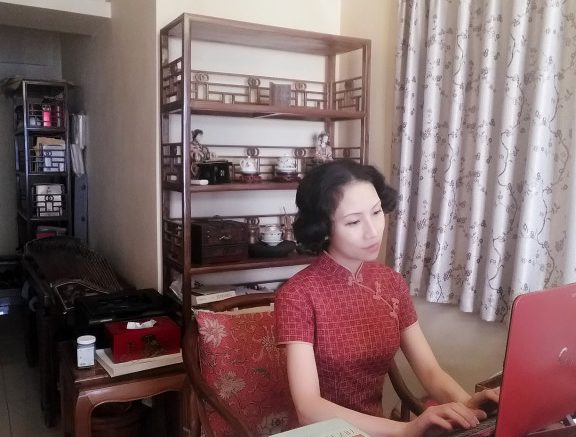By Wu Ruoqi –
Even though it was an undertaking that would have placed him a hair’s breath away from accidentally killing his favorite daughter, Harvey Cushing decided to rise to the challenge anyway: his fifteen-year-old had a lump on her neck that was dangerously close to a crucial set of veins, and Cushing – by then he had become America’s preeminent brain surgeon – charged himself with the responsibility of removing it. In the operating theater, he pricked a vein by mistake, but “cold as ice” he carried on with excising the tumour, recounted his granddaughter. The incision was so sewn up with such skill that when the skin healed, no scar was visible.
If only I could induce myself into the mental state of being “cold as ice” as I go about writing – my life would be so much easier.
Writing is hard under ordinary circumstances. To keep readers eager to read one paragraph after another, you need to anticipate and manipulate their reaction; to check your stage effects you have to will yourself to pretend you’re reading your copy for the first time. But impersonate your reader enough times, and it’s easy to lose grip on how things really are: as your piece edges its way towards completion, you may find yourself torn between allowing yourself to believe that it works, and fearing you’ve merely successfully deluded yourself into thinking that it works.
To non-writers, the sight of a solitary writer at work may be a picture of quietude, but the Cushing story shows there is more than what meets the eye: either the writer is able to, like Cushing, block out her anxieties and focus on her work, or she is held captive by them and stunned into inaction.
And then, as if the burden of second-guessing yourself weren’t trying enough, there’s an added complication if you, like me, are one of those who write about Chinese culture in English. You do so because you think you owe it to the larger humanity to make known to them aspects of your ancestral heritage you find riveting. But your sense of mission weighs you down by setting the bar high. Every now and then, you need to somehow summon the kind of wizardry that normally only belongs to people like Ferran Adria, frequently named the world’s greatest chef. To overcome western diners’ reluctance to suck juice straight out of a shrimp’s head – Adria thinks there’s no better way to “taste the Mediterranean” than this – he would secretly poured the elixir over his food in his kitchen. “I’ve changed the context. I can do this and people will eat it,” he explains. Likewise, to make Chinese culture palatable to westerners, you need to line it up with associations that provide such readers with just the degree of familiarity they need to feast upon it with gusto. This kind of strategic know-how doesn’t come out of nowhere: you develop it over time by shifting between the western and Chinese points of view and cracking the code they share. But this means that as you wrestle with copy, in addition to role-playing the reader, you also need to adopt – on cue – either the Western or Chinese perspective. Is it any surprise, therefore, that when others assure you your work hit the right notes, you don’t believe them? By then, all the hat-changing you’ve put yourself through has left you, for all practical purposes, drained and disoriented.
It took another surgeon to help me to get inside Cushing’s head as he cut open his child’s throat. This surgeon confessed in jest to researchers who had interviewed him for a survey that to him a patient’s body is mere “human material…we could be woodworkers and make a chair that holds up, it’s the same thing. The patient thinks we’re taking care of him but actually we’re enjoying ourselves, more than anything.” With just that, he unraveled for me the mystery of how Cushing was able to carry on operating on his daughter despite an inauspicious start: Cushing had long accepted that the very calling that gave him gratification he couldn’t find elsewhere would always afflict him with self-doubts as well. Over time, he became so adept at putting his fears at a distance that on the day of his daughter’s operation, she simply assumed for him the guise of human material. The implication for me is enormous, for my hang-ups about writing will miraculously vanish when I’m polishing someone else’s piece: paradoxically, it is by not expecting my fears to ever go away that I can keep a lid on them, and reach the juncture where working on my copy becomes as painless as editing another person’s work!
Educated at the Diocesan Girls’ School and Oxford, Wu Ruoqi lived in mainland China and worked in the PR and media sectors for a decade before returning to Hong Kong. She is now working on a book on Chinese astrology and coaching senior school students on English composition, as well as writing about the complexities of being Chinese in post-colonial Hong Kong on the side. She can be reached at[email protected]
This article also appears on CitizenNews, www.hkcnews.com


Be the first to comment on "Inside a writer’s struggle with fear"